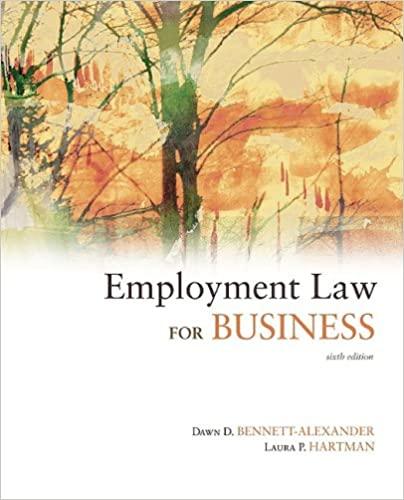Answered step by step
Verified Expert Solution
Question
1 Approved Answer
Three Hoops First, let's place venue in context as one of several forum selection doctrines. For a case to be brought in a particular court,
Three Hoops First, let's place venue in context as one of several forum selection doctrines. For a case to be brought in a particular court, that court must have subject matter jurisdiction over the action, must have personal jurisdiction over the parties, and must be a proper venue under applicable federal or state venue rules. Whereas subject matter and personal jurisdiction address the court's power and boast constitutional underpinnings, venue operates on a more mundane level as a statutory constraint on forum choices. B. Venue in State Court Venue rules for state courts vary from state to state and are generally regulated by statute. These statutes determine where within a statewhich county, parish, or districtcases can be brought. Law school civil procedure courses rarely focus on state court venue, so I'll keep it short. Often, state venue statutes permit a court to hear a case in the county, parish, or district of the plaintiff's residence, the defendant's residence, where a contract was signed or was to be carried out, or where a substantial part of the events leading to the dispute occurred. Many state venue statutes retain the old common law distinction between local and transitory actions. Local actions are those that concern real property, such as lawsuits to determine property ownership, to gain possession of land, or sometimes for trespass. A local action must be brought in the court where the property is located. Transitory actions include all other lawsuits and can be brought wherever permitted by the general venue rules as long as the defendant is subject to personal jurisdiction. The notion behind the local-transitory distinction is that a transitory action could have arisen anywhere, whereas a local action, because it involves a specific piece of real property, could have arisen only in one place. Really, it's not a terribly satisfying distinction. Of course, a specific property dispute arises in a specific place. But can't the same be said of automobile accidents, barroom brawls, employment disputes, or a host of other \"transitory\" actions? Satisfying or not, in most courts, lawsuits involving real property are considered local actions and must be brought in the county, parish, or district where the property is found. C. Venue in Federal Court The federal courts are divided into over 90 districts. Venue statutes determine which of those districts are appropriate places for a court to hear a particular case
Step by Step Solution
There are 3 Steps involved in it
Step: 1

Get Instant Access to Expert-Tailored Solutions
See step-by-step solutions with expert insights and AI powered tools for academic success
Step: 2

Step: 3

Ace Your Homework with AI
Get the answers you need in no time with our AI-driven, step-by-step assistance
Get Started


